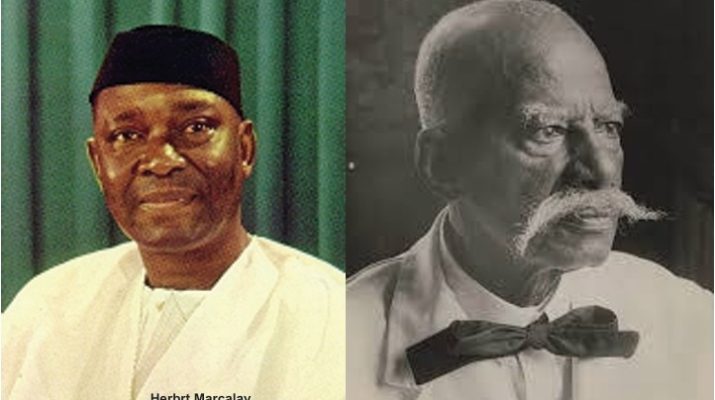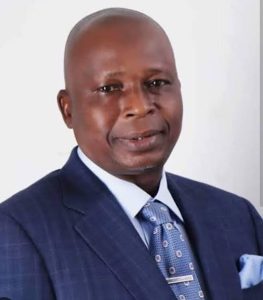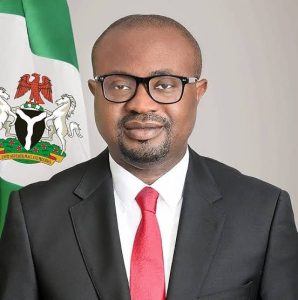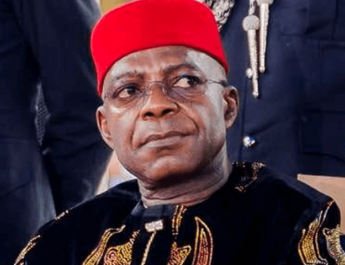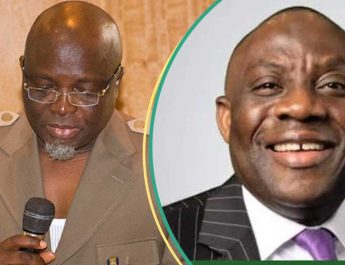By Edu Abade
A coalition of civil society groups has lampooned President Bola Ahmed Tinubu’s pardon for drug peddlers, armed robbers, kidnappers and convicts for sundry other crimes, describing the inclusion of nationalists like Nnamdi Azikiwe, Herbert Macaulay, as well as Ken Saro Wiwa and the Ogoni martyrs among the beneficiaries as ‘a contentious clemency’, insisting that the list of ‘beneficiaries’ should be withdrawn and the Ogoni nine properly recognized and commended
Civil society groups comprising human rights activists, environmental defenders, community rights advocates and climate crusaders have punctured President Bola Ahmed’s recent presidential pardon for sundry criminals including drug barons, armed robbers and other criminal elements, describing the move as a sham and a big shame on the country.
The groups argued that granting state pardon to criminals and lumping them together with nationalists like the late Chief Nnamdi Azikiwe and Herbert Macaulay and coup plotters contradicted sound reasoning and should be reconsidered as a matter of national pride and honour for the sake of posterity and for the decency of generations yet unborn.
In a statement made available to journalists, they said, “Our attention has been drawn to the context and content of the recently approved pardons by President Bola Ahmed Tinubu, extended to a mixture of convicted murderers, kidnappers, drug dealers, coup plotters, armed robbers and illegal miners totaling 175.
“While we hold no hard opinions about those pardoned by the President, we are, however, concerned about a recent statement by the Special Adviser on Information and Strategy to the President, Bayo Onanuga, publicly announcing the justifications for the pardons and clemency.
In a statehouse news release titled Details of the Presidential Pardon and Clemency, Onanuga had stated, “Illegal miners, white-collar convicts, remorseful drug offenders, foreigners, Major General Mamman Vatsa, Major Akubo, Prof. Magaji Garba, capital offenders such as Maryam Sanda, Ken Saro Wiwa and the other Ogoni Eight were among the 175 convicts and former convicts who received President Bola Ahmed Tinubu’s mercy on Thursday, October 9, 2025.”
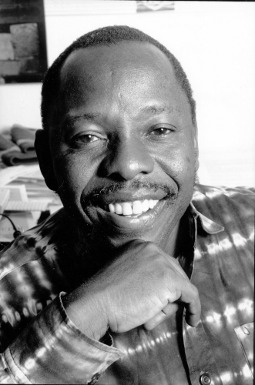
Further in the statement, Onanuga also referred to four Ogoni leaders who were unfortunately murdered by a mob in 1995 and whose murder the Ogoni 9 were framed for, as ‘victims of the Ogoni 9’. This later reference paints a sordid and misleading picture that the Ogoni 9 were in actual fact, murderers.
The statement by the Presidential Adviser is laced with insinuations and references that have no bearing on history, reality and globally acceptable facts about the occurrences that led to the execution of Ken Saro Wiwa and his fellow rights activists on November 10, 1995. For the avoidance of doubt, it is critical to reiterate the well-established facts.
In 1958, Ogoniland emerged as a focal area within Nigeria’s growing oil economy, contributing major revenues to the country’s economy. Unfortunately, the benefits from oil resources have not reached the Ogoni people in any significant measure. Rather, Ogoni communities have for decades borne the impacts of the industry’s adverse activities.
In 1970, Ogoniland witnessed Nigeria’s first major oil spill arising from an error by Shell, a spill that continued for 3 whole weeks with devastating consequences for the livelihoods of the people. Since then, oil spills and blowouts have occurred on a regular basis in Ogoniland. Estimates have it that in the 15-year period between 1976 and 1991, there were over 2,976 recorded oil spillages in Ogoniland. It was this level of neglect and ecological destruction that led to the adoption of the 1990 Ogoni Bill of Rights, a landmark document that demanded the right of the Ogoni people to protect their environment and ecology from further degradation.
Among others, the Bill describes the Ogoni case as a ‘genocide being committed in the dying years of the twentieth century by multi-national oil companies under the supervision of the Government of the Federal Republic of Nigeria.”
The Ogoni people, mobilized under the Movement for the Survival of Ogoni People (MOSOP), called the attention of the world to the poverty, neglect and environmental destruction, which decades of oil exploitation had bequeathed on the Ogoni people. MOSOP demanded fairer benefits to the Ogoni people from oil wealth, as well as remediation and compensation for the ecological damage caused by the reckless activities of oil companies.
The Nigerian military government responded to the demands and non-violent protests of the people with vicious repression. A military operation was initiated in Ogoniland. The mass killings and widespread carnage that the military visited on the Ogoni remain largely undocumented.
Thousands of Ogonis lost their lives, and many others went into forced exile around the world. In May 1994, capitalizing on the unfortunate killing of 4 prominent Ogoni leaders by a mob of yet-to-be-identified persons in Gokana local government area, Ken Saro-Wiwa, Saturday Dobee, Nordu Eawo, Daniel Gbooko, Paul Levera, Felix Nuate, Baribor Bera, and Barinem Kiobel were arrested.
After a few months of predetermined trial by a special military tribunal, a sentence of death was pronounced on Ken Saro-Wiwa and 8 others on October 31, 1995. 10 days after, within the period the accused persons could appeal the judgement, the nine were immediately executed on November 10, 1995, against a backdrop of outrage, global condemnation and eventually, international sanctions on Nigeria. It is important to note that this was a trial in which forced witnesses recanted their testimonies, and the accused’s lawyers withdrew due to the tribunal’s predetermined, biased position.
What the Ogoni and indeed the world have consistently demanded is an admission that the quasi-judicial process, which resulted in the conviction of the Ogoni 9, was a mockery of justice orchestrated by the military government with the active collaboration of Shell to quell community demands for resources and ecological justice. What we continue to demand is the complete exoneration of Ken Saro-Wiwa and his eight comrades. The reference to Ken Saro-Wiwa and his comrades by the Presidency is insensitive and offensive to their memory and that of other victims of environmental injustice. It does little to bring closure to the families of those killed, and thousands of families who suffered indignity, abuse and losses on account of the reckless military expedition in Ogoni led by Major Paul Okuntimo and Dauda Musa Komo.
This statement was endorsed by the Health of Mother Earth Foundation (HOMEF), We the People, Corporate Accountability and Public Participation Africa (CAPPA), Environmental Rights Action (ERA), Kebetkache Women Development and Resource Centre, MiideeKor Environmental Development and People’s Advancement Centre.
Others are Social Action and Ogoni People’s Assembly, Human and Environmental Development Agenda (HEDA), Oilwatch Africa, Rights advocacy and development centre, Lekeh Development Foundation and Civil Rights Council.
“It is unacceptable that despite overwhelming evidence of the miscarriage of justice against the Ogoni 9, which resulted in their hurried execution, the Nigerian state still considers them guilty and deserving of a pardon. In the statement, no mention was made of either the abuse of the judicial process, or the fact that the constitutional right to appeal was not extended to the Ogoni 9.
“It is particularly interesting to note that in reference to Sir Herbert Macaulay, whom the President considers to have been unjustly treated by the colonialists, the statement had the following additional statement: ‘President Tinubu also corrected the historic injustice committed by British colonialists against Sir Herbert Macaulay, one of Nigeria’s foremost nationalists.’ One wonders why the same clarification was not provided for the Ogoni 9.
“We are equally concerned that the half-hearted pardon extended by the President may be a strategic ploy to resume the extraction of crude oil in Ogoniland, a move that has so far been condemned and resisted by all well-meaning Nigerians,” the statement added.
The groups urged President Tinubu to immediately withdraw the ‘pardon’ to Ken Saro Wiwa and his colleagues and replace it with an unequivocal apology and condemnation of the faulty judicial process that resulted in their murder, followed by a gazette pronouncement quashing their murder conviction.
“Ken Saro-Wiwa, Saturday Dobee, Nordu Eawo, Daniel Gbooko, Paul Levera, Felix Nuate, Baribor Bera, and Barinem Kiobel were exemplary leaders of the Ogoni nation who responded peacefully to the plight of their people and the destruction of their environment. Their commitment to right historical wrongs against their people and the environment should be recognised and commended,” the statement concluded.

